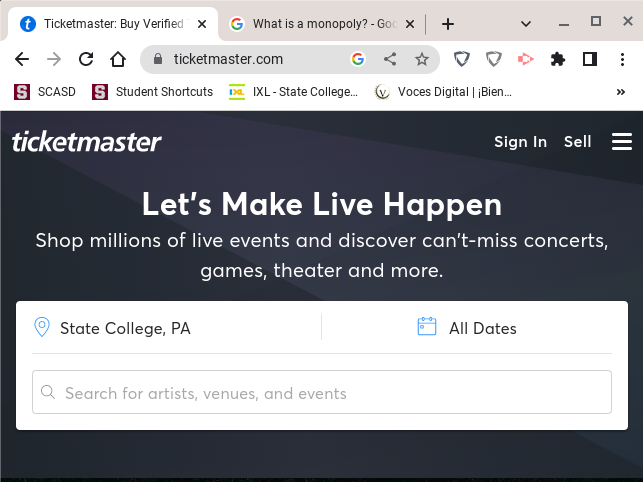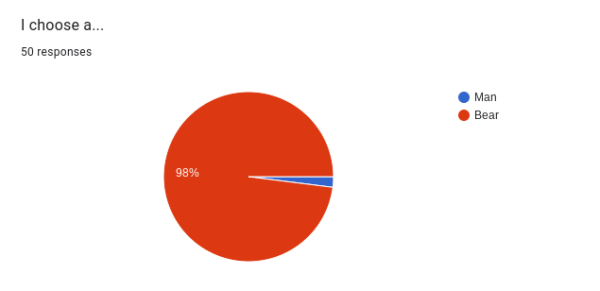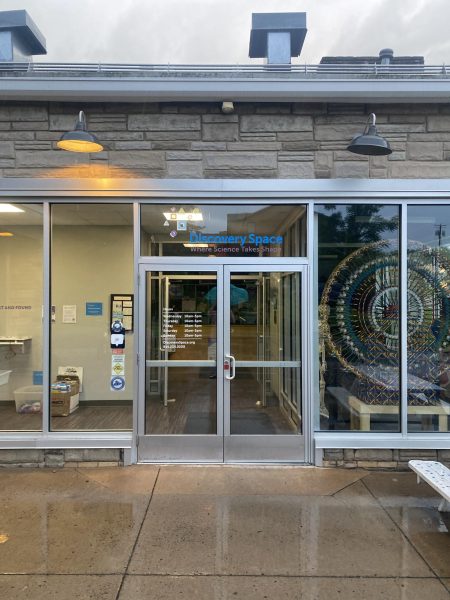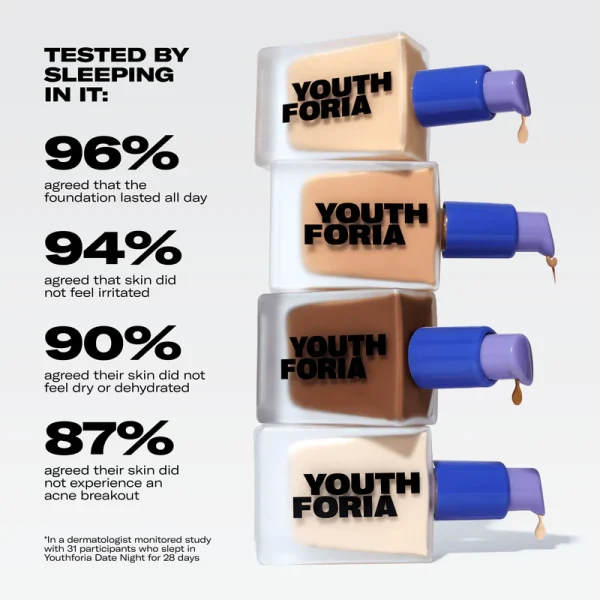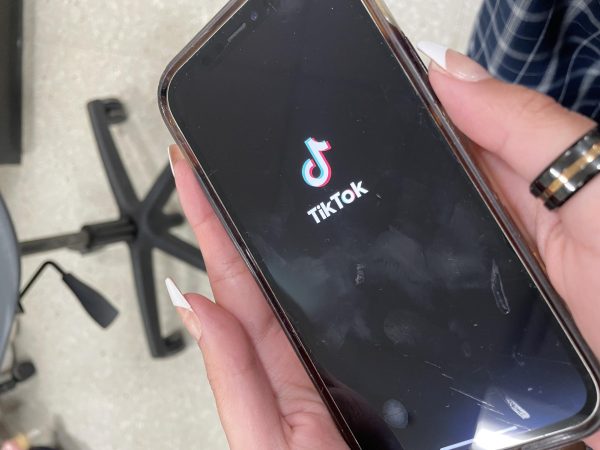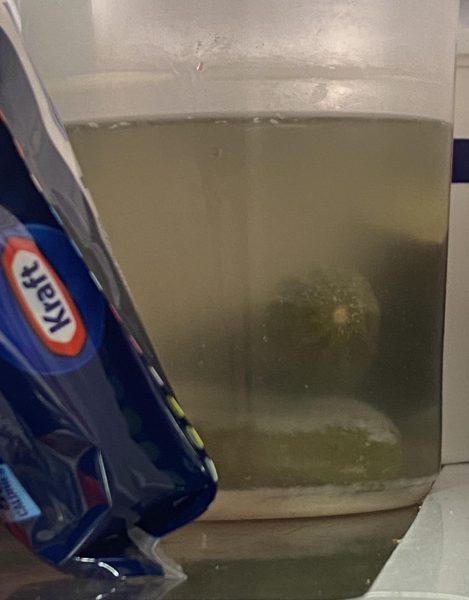Is Ticketmaster a Monopoly?
Ticketmaster is an online ticketing company that sells tickets to concerts, sports events, and other entertainment. Recently, politicians and fans were accusing the company of being a monopoly.
February 19, 2023
For people looking to purchase tickets to concerts and sporting events, it seems like they only have one option — Ticketmaster. Ticketmaster is a force in the entertainment industry, so much so that in recent months, there has been increasing debate about whether Ticketmaster and its parent company, Live Nation, have monopolized the ticketing industry.
Ticketmaster is a company that sells tickets to concerts, sports events, and other entertainment events. In 2010, they merged with Live Nation, a company that owns over 300 venues around the world. While controversial, the merge was approved by the US Department of Justice. Since the merger, Live Nation has made money from tickets sold through Ticketmaster, as well as through other ticket companies that sell tickets for events at Live Nation venues.
A monopoly is defined as “exclusive ownership through legal privilege, command of supply, or concerted action” according to Merriam-Webster dictionary. Under capitalist economic systems, such as the one in the United States, monopolies can go unchecked under lax policies. When a single company controls the majority of one market, other companies have a difficult time competing and making money. Monopolies disrupt the competition that is vital to a functioning capitalist economy.
Following the disastrous sale of Taylor Swift tickets in November 2022, which was hosted by Ticketmaster for most of the dates, many people noticed flaws with their system.
Tickets for the concerts went on presale for “verified fans”, followed by a Capital One sponsored presale, then a regular sale later in the week. This did not go according to plan, as many of the verified fans faced delays and glitches, and thousands were unsuccessful in purchasing tickets. The Capital One presale faced similar issues, as it was delayed to a later day, and like the previous sale, countless fans were left without tickets. The issues culminated in the regular sale being canceled due to limited tickets remaining, so again fans felt extremely disappointed.
“My grandma [purchased tickets] and I don’t know how she got in, but she did and she’s amazing. But my dad [did] not get in,” said sophomore Harper House, describing how the Ticketmaster sale went for her and her family.
With all the unhappy fans, Ticketmaster released a statement describing how the massive demand by fans led to bot attacks. “Historically, we’ve been able to manage huge volume coming into the site to shop for tickets, so those with Verified Fan codes have a smooth shopping experience. However, this time the staggering number of bot attacks as well as fans who didn’t have codes drove unprecedented traffic on our site, resulting in 3.5 billion total system requests – 4x our previous peak,” the statement read.
As a prominent and wealthy company, Ticketmaster should have the means to protect its fans while purchasing tickets. But, since they control so much of the industry and lack competitors, there is little incentive for them to change their systems to help buyers.
Ticketmaster has also been criticized by politicians, including in a hearing by the Senate Judiciary Committee in late January. Senators from both parties participated in the hearing focused on Ticketmaster and Live Nation’s lack of competition in the ticketing industry.
Senator Amy Klobuchar (D-MN), who led the hearing, started off by saying, “Whether it’s for fans, performers, promoters, or venue operators, we need to make sure we have competition to bring prices down and bring innovation in and stop the fiascos.” Followed by, “Today, Live Nation doesn’t just dominate ticketing… Live Nation is so powerful it doesn’t even need to exert pressure, it doesn’t need to threaten, because people just fall in line.”
President Biden also addressed conditions in the ticketing industry in his State of the Union Address. On Feb. 7, Biden discussed his plans for the Junk Fee Reduction Act, aimed at addressing companies’ unnecessary fees.
Biden’s goals include to, “Pass bipartisan legislation to strengthen antitrust enforcement and prevent big online platforms from giving their own products an unfair advantage.” And, the president added, “We’ll cap service fees on tickets to concerts and sporting events and make companies disclose all fees upfront.”
Ticketmaster and Live Nation’s lack of competition in the ticketing industry allows them to add unnecessary and costly fees to their tickets, along with using technology that doesn’t properly account for demand. As the dominant ticketing platform in the industry, they have been able to get away with this as they lack competition.
This lack of competition and incentives to improve shows that Ticket Master is indeed a monopoly in the industry.
“They [Ticketmaster] affiliate with all the arenas which means the arenas can only sell tickets through them. This is a monopoly because otherwise, she [Taylor Swift] would only be able to perform at two stadiums,” says sophomore student Margo Wyckoff, describing how Ticketmaster lacks competition.
The impacts of Ticketmaster’s dominance in the ticketing industry are immense, and the negative effects will continue to grow if unchecked. When a single company has clear control over its industry, it is time to wonder whether it has too much power and how it can be balanced.
The history of monopolies in the US is ever changing, as well as our understanding and reactions to them. In the modern version of a monopoly, Ticketmaster fits right in.

